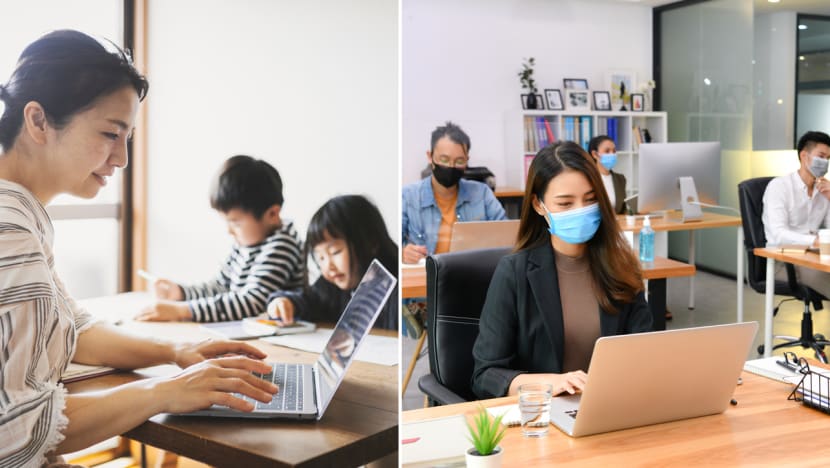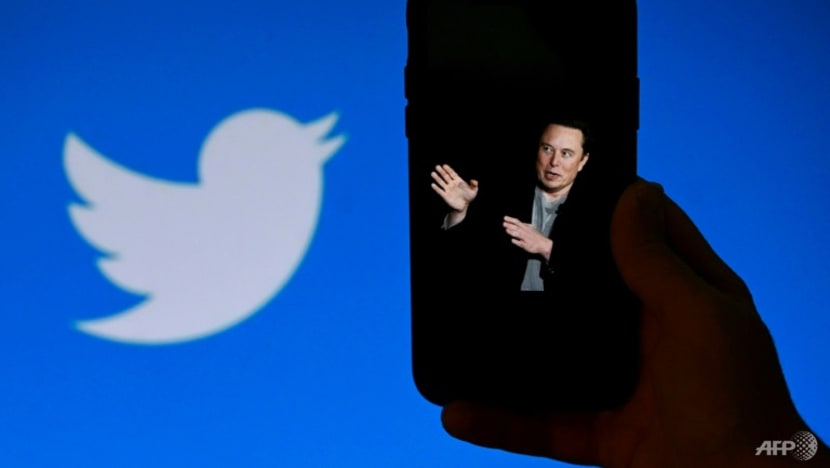 |
| FILE PHOTO: Working at home and in the office in a hybrid work arrangement. (Photo: iStock) |
Gillian Tett
18 Nov 2022
LONDON: The great attrition of employees shows no signs of slowing. Recent reports from management consultant McKinsey suggest that as many as 40 per cent are considering leaving their jobs, usually to seek a different type of career or “non-traditional work”, including temporary or part-time roles.
According to one survey, money is an issue, but it’s definitely not the only issue. “Meaningfulness of work” and “adequacy of workforce flexibility” around issues such as working from home are also front of mind.
The key, it seems, is a sense of personal control, both to define how and where work happens, as well as how it aligns with workers’ personal values.
Some readers will wince at this. Others will view it as a short-term phenomenon that emerged during the pandemic.
Once this novelty wears off and recession hits, workers will become less demanding. Or so the current argument among many corporate leaders goes.
A few have decided to crack the whip. On Nov 10, Elon Musk, Twitter’s new owner, banned staff from working from home. Jamie Dimon, CEO of US bank JPMorgan Chase, would like to. And others may follow their lead in the new year.
How well this works remains to be seen. Musk’s edict sparked the predictable social media outrage, while friends working at JPMorgan tell me that many of their colleagues are simply finding ways to work at home some of the time.
 |
| Twitter owner Elon Musk has banned staff from working from home. (Photo: AFP/File/OLIVIER DOULIERY) |
PANDEMIC, RISE OF ZOOM NOT THE ONLY REASONS
There is so much quiet rebellion in the working world — and executive alarm about it — that many companies have been more accommodating.
New employees at Bridgewater say they are only being asked to come to the office for two days a week. This seems in stark contrast with the hedge fund’s reputation for discipline and an intense company culture. I suspect more companies will be forced to adopt Bridgewater’s approach.
Once you dig into what’s driving some of these changes, it is not hard to see that pandemic lockdowns and the rise of the Zoom meeting are only partly to blame. Another factor that matters — and one that Musk and Dimon seem to have overlooked — is that the rise of digital technologies goes hand in hand with a subtle but crucial shift in how we see ourselves.
Welcome to Generation Playlist. Or, as I’m calling it, Gen P.
THE “ME” GENERATION IS EVOLVING AGAIN
At stake is the critical issue of how individuals are viewed relative to their social group. As anthropologists such as Joseph Henrich have pointed out, in most cultures across the world, during most of history, individuals and their choices have been seen as a product of society. The group defined people’s identities. The choice was to fit in or get out.
Starting with the European Enlightenment, this shifted. Western society came to be seen as the product of individuals, who had rights. Hence the eventual emergence of the “Me” generation in Western 20th-century popular culture.
In the 21st century, the “Me” generation is evolving again. Technology has fostered the idea that while individuals sit at the centre of their own world, they can, and should, fashion it to their individual tastes.
This already happens in consumer culture, where we increasingly customise everything — from our travel plans to coffee choices and, of course, the music we listen to — rather than just fitting in with a preset package. It is also reshaping media, with people increasingly using a pick’n’mix approach to absorbing news on their own terms.
CUSTOMISATION OF WORK
Unsurprisingly, it’s now seeping into our attitudes towards work.
Half a century ago, employees accepted the older generation’s definition of work and careers. Today, they want to fashion it themselves, on their own terms, and, as the McKinsey survey shows, are prepared to quit if they are unable to do so.
To traditionalists, this attitude sounds selfish and immature. To younger people, many of whom are locked out of the privileges that their parents took for granted — from home ownership to affordable college tuition — it feels not just empowering, but also necessary.
Ironically, Musk acts like the ultimate Gen P, apparently believing he has the right to fashion the world to meet his desires.
Indeed, this shift has been so inexorable that many younger people view customisation as entirely normal. They have no memories of what it was like to live in a world of vinyl records or where the only options for coffee were “black” or “white”.
So ripping away their sense of choice is not something that Gen P will embrace easily.
Corporate managers might fret about the great attrition. But they cannot tackle it unless they try to understand Gen P — and recognise that this mindset shift will not disappear soon. Even if there is a recession.
No comments:
Post a Comment